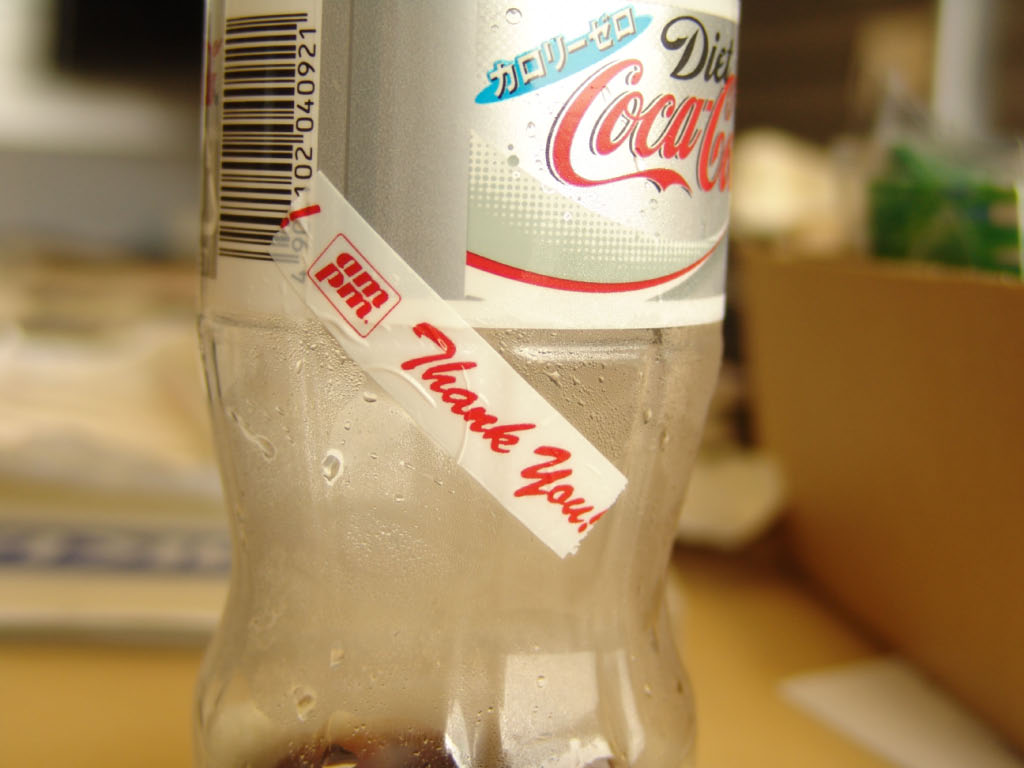My pet hate in Japan is the little stickers that are applied to your purchases if you decline to to put the goods in a plastic bag. Since I usually carry my own bag I always get the stickers, on everything.
That sticker encapsulates a negative aspect of the retailer/customer experience: “Thank-you for shopping at our store, but we don’t trust you enough to walk out without stealing goods. So we apply this sticker to make you think it’s easier for us to know what you’ve bought, and easier to identify you’ve just attempted to steal. Have a great day”. Presumably the reason the sticker is applied is that it is an effective deterrent against theft,
because it is highly visible and obvious what it applies to i.e. the object it isstuck on. (The sticker roll is ripe for a subversive makeover – drum roll designers…)
With increased purchases of digital goods content providers are looking to Digital Rights Management (DRM) solutions to limit where and how content is played. For me a fair DRM solution assumes people know what they own, and know the rights for what they own. With competing DRM solutions this is not going to be an easy task. Ask yourself this question:
Are there limits to how and where songs downloaded from the iTunes store can be played?
In my mind if you answer ‘yes’ you are already in the niche that is
technology orientated consumers. Next question:
How many of you can list any use-boundaries of songs downloaded from the iTunes store?
If you can answer ‘yes’ you’re otaku. Most people have a life where
technology or the design and application of technology are not a central driver. It’s a wonderful world out there, and it’s got nothing to do with computer screens, keyboards and mice (I’m sitting here tapping out this article, looking forward to my morning cycle ride through Tokyo to get to the office).
If you are a P2P network user – how many times have you downloaded the same song? Looking at my (paid for) physical and digital music collection I frequently find duplicates – songs that I’ve paid for more than once. We used not to get a choice – you bought the album even it contained two songs identical to that other album you bought. Even on digital stores it’s easier to select all the songs from an album than figure out the one or two you may have already, and (for this consumer) the cost of checking multiple devices where my the music is stored is more that the cost of buying a few duplicates.
I’m looking forward to the day when N million iTunes users start hitting use boundaries and start looking for ways and perhaps demanding ways to free what they consider to be ‘their music’. Maybe the delay between the time of purchase and the hitting of boundaries will be sufficiently long – 3 years? 5 years?, that the impact will be met with a resounding silence. Each consumer older and wiser?
Returning to the sticker… physical objects have presence, and although I dislike the sticker on the Coke bottle at least it noticeable enough to have feelings about.
